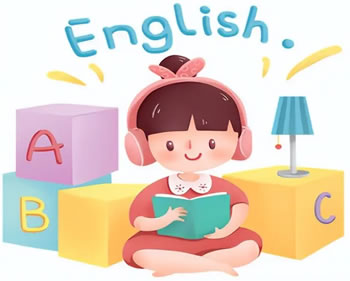
高三英语语法整理(插图)
学习外语并不难,学习外语就像交朋友一样,朋友是越交越熟的,天天见面,朋友之间就亲密无间了。重复重复再重复,熟练熟练再熟练,是学会英语的不二法门。下面是作文地带给大家整理的一些高三英语语法的学习资料,希望对大家有所帮助。
高三英语语法知识点总结
1、 at
如: 常用词组有: at noon, at night
表示时间的 at, in, on:表示片刻的时间,at 8 o’clock,at midnight, at the end of, at that time, at the beginning of, at the age of, at Christmas, at New Year 等。
in 表示一段的时间
如:in the morning, in the afternoon, in the evening, in October, in 1998, in summer, in the past, in the future 等。
on 总是跟日子有关,on Monday, on Christmas morning, on the following, on May Day, on a warm morning 等。
2、表示时间的 since 和 from:since 表示从过去到现在的一段时间的过程,常与现在完成时连用:from 表示从时间的某一点开始,不涉及与现在的关系。一般多与现在时、过去时、将来时连用。
如:I hope to do morning exercises from today./ We have not seen each other since 1995.
3、表示时间的 in 和 after:两者都表示“在(某个时间)之后,区别在于in表示“在(一段时间)之后” ,而 after 则表示“在(某一具体时间点之后),in 短语和将来时态连用,after 短语和过去时态或将来时态连用。
如:We’ll be back in three days.
After seven the rain began to fall.
What shall we do after graduation?
After two months he returned. 注意:after 有时也可以表示在一段时间之后(常用在过去时里)
4、表示地理位置的 in, on, to:in 表示在某范围内,on 指与什么毗邻,to 指在某环境范围之外
如:Changchun is in the northeast of China./ Mongolia is on the north of China./ Japan is tothe east of China.
5、表示“在……上”的 on 和 in:on 只表示在某物的表面上,而用 in 表示占去某物一部分,表示……上
如:There is a book on the piece of paper./ There is an interesting article in the newspaper./ He dug a hole in the wall.
高三英语必修一词语语法知识点
1.mean doing sth. 意味着;mean to do sth. 打算或企图做某事;
mean sb. to do sth. 打算让某人做某事be meant for 打算作……用; 为…而有 2.take place 发生;举行 3.of all kinds 各种各样的
4.starve to death饿死 be starved of 缺乏, starve for sth, starve to do,渴望
5.plenty of 大量; 充足 6.be satisfied with感到满意to one’s satisfaction感到满意是 7.do harm to sb.=do sb. harm 伤害某人 8.in the shape of呈…的形状,以…的形式 9.in memory of/ to the memory of sb.纪念某人 10.dress up 穿上的衣服;打扮,化装 11.award sth.(to sb.)和award sb.sth.(for sth.) 给予、颁奖
reward sb. for sth. 因 …奖赏某人; reward sb. with sth. 用某物酬劳某人
12. admire sb. for sth在某方面钦佩某人 13.look forward to期望,期待,盼望 14,have fun with(与某人)玩得开心;过得快乐 ( have a good time, enjoy oneself.)
15. turn up.来;出现;把(收音机等)音量开大些 turn down 拒绝; turn off 关掉; turn on 打开; turn out 结果是...... turn to sb. for help 向某人求助 16.keep one’s word 守信用; break one’s word, 失信 17.It be obvious that-clause显而易见;一目了然
18.set off 动身, 出发; 使(地雷、炸弹)爆炸; set in开始;
set up建立,创立 ;set out to do = set about doing sth.着手做set down 写下,记下 19.remind sb. of sth. 提醒,使想起
高三英语语法知识点归纳
一、非谓语动词
“非谓语动词”可分为动词不定式、动名词和分词.它在句子中的作用很多:除了不作谓语外,它可以充当主语、宾语、表语、定语、状语与复合宾语(主语补语或宾语补语).有些及物动词后面接不带to的不定式作复合宾语.这些动词归纳如下:一感(feel).二听(hear,listen to),三让(have,1et, make),四看(see,watCh,notice,observe).再加上help somebody(to)do something和美国英语look at somebody do somthing.还有“二让”属特殊:get somebody to do something 与keep somebody doing.而有些及物动词后面接动名词(the -ing form)作宾语.这些动词归纳为一句话:Papa C makes friends.这是由如下动词的开头字母组成:permit,advise, practise,avoid,consider,mind, allow,keep,enjoy,suggest, finish,risk,imagine,escape,need,delay,stand(忍受). 为了容易记住,也可以编成顺口溜:“允许完成练习,建议避免冒险,考虑延期逃跑,喜欢保持想象,需要反对忍受”.其相对应的动词依次是:permit/allow,finish,practise;
advise/suggest, avoid,risk: consider, delay, escape/miss; enjoy/appreciate, keep, imagine; need/want/require,mind. can't help/can’t stand.
二、复合句
1、学生最容易混淆的是定语从句与同位语从句的区别.
例如:A、The news that our team has won the match is true. (同位语从句)
B、The news that he told us surprised everybody here. (定语从句)
关键的区别在于连接或关系代词that:有意义的是定语, 无意义的是同位.因为引导定语从句的that在从句中作主语或 宾语,而引导同位语从句的that只起到连接词的作用.
2、接着容易混淆的是引导定语从句的关系代词that与 which:that之前是不定(代词)、序数(词)、(形容词)级:which之前是介词短语与逗号(非限制性).
例如:A、All that we have to do is to practise every day.
B、The first lesson that I learned will never be forgotten.
C、I have lost my pen,which I like very much.
D、The house in front of which there is a garden is my home.
编辑:Liuxuepaper.Com
作文地带知识拓展:
英语(English)属于印欧语系日耳曼语族西日耳曼语支,最早被中世纪的英国使用,并因其广阔的殖民地而成为世界使用面积最广的语言。英国人的祖先盎格鲁部落是后来迁移到大不列颠岛地区的日耳曼部落之一,称为英格兰。这两个名字都来自波罗地海半岛的Anglia。该语言与弗里斯兰语和下撒克森语密切相关,其词汇受到其他日耳曼语族语言的影响,尤其是北欧语(北日耳曼语),并在很大程度上由拉丁文和法文撰写。
英语的英文释义:
English 名词 uk /ˈɪŋ.ɡlɪʃ/ us /ˈɪŋ.ɡlɪʃ/
the language that is spoken in the UK, the US, and in many other countries
英语
American/British English
美式/英式英语
Do you speak English?
你会说英语吗?
English 形容词 adjective uk /ˈɪŋ.ɡlɪʃ/ us /ˈɪŋ.ɡlɪʃ/
in or relating to the English language
英语的
an English teacher
英语老师
relating to or from England
英格兰的;英国的
English films/food/people
英国电影/食品/人
English law
英格兰法律









文档为doc格式
推荐阅读:




